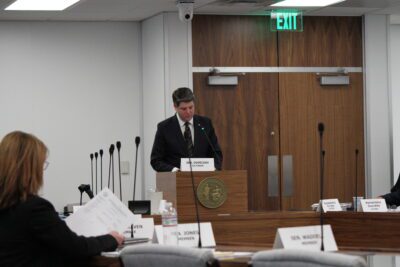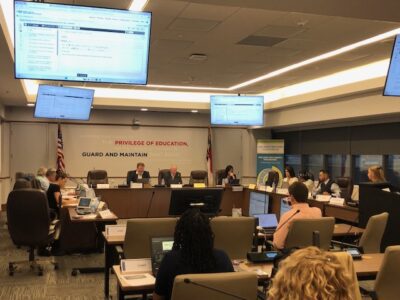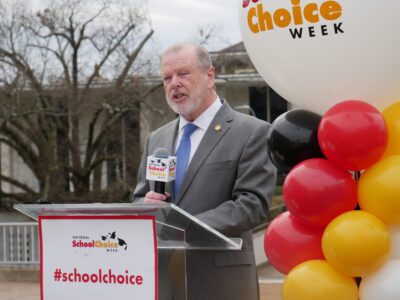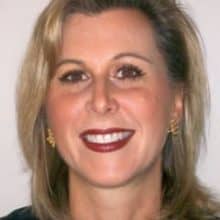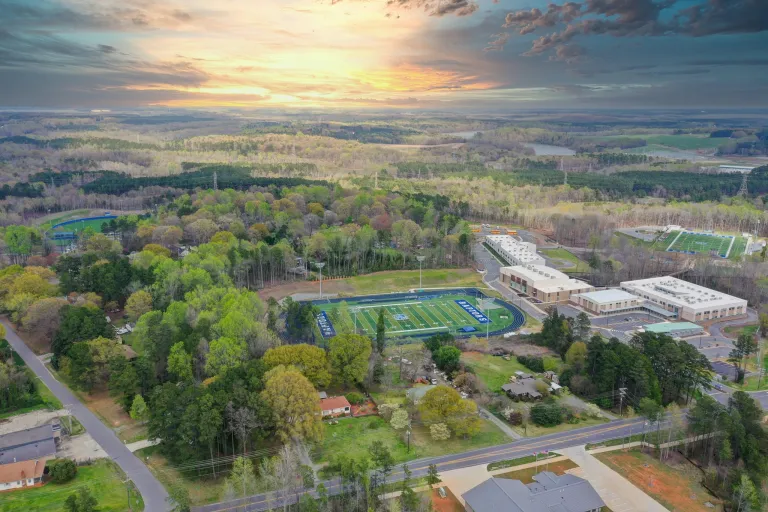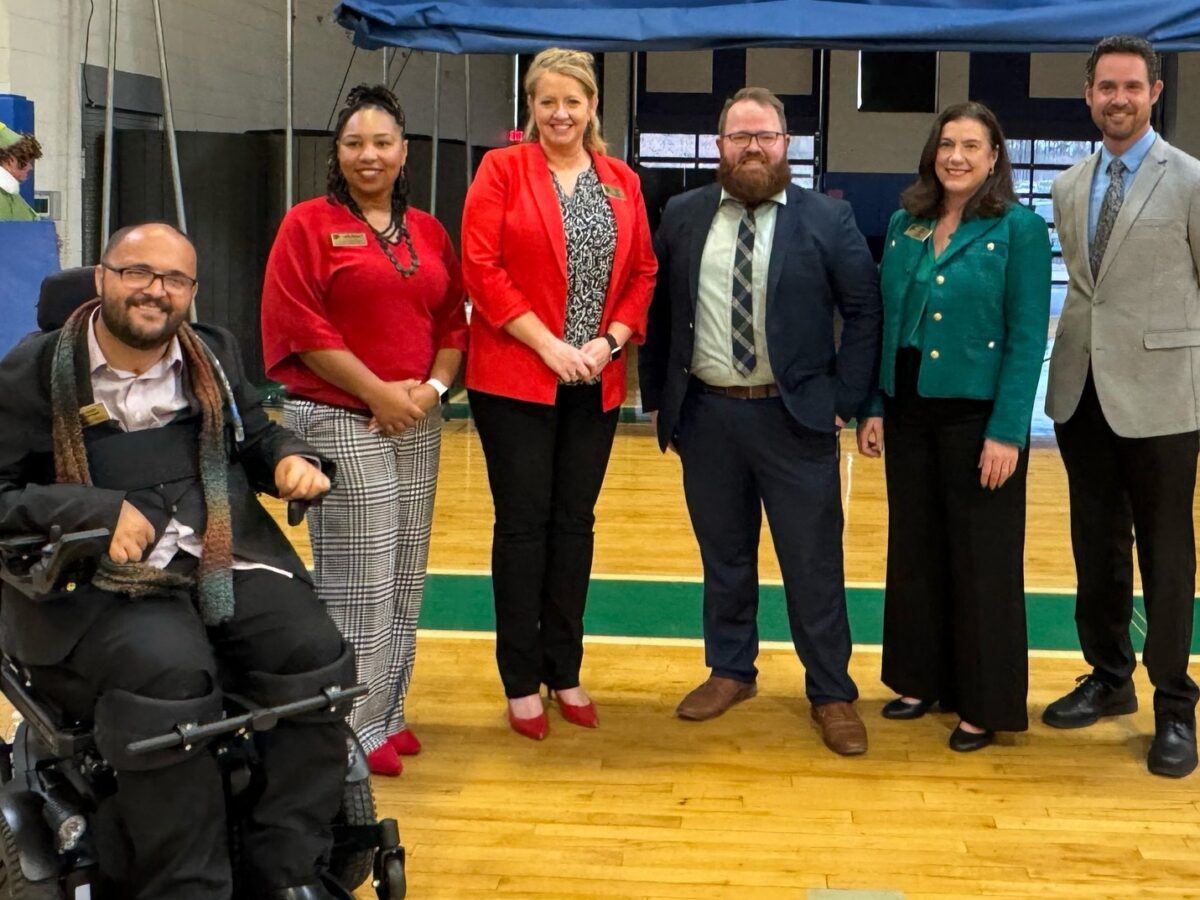
Dr. Jake Wilson is the 2025 North Carolina Charter School Principal of the Year. He began his career teaching elementary school students, working as a third and fourth grade teacher in Gaston County, and later, as a teacher and administrator in Cleveland County. Wilson currently serves as the middle and high school principal at Mountain Island Charter School (MICS) in Mount Holly, North Carolina.
Kristen Blair, the communications director for the North Carolina Coalition for Charter Schools, spoke to Wilson recently about his role as Charter School Principal of the Year, his servant leadership approach, and lessons learned across the years from working with adolescents. You can read the full interview below.
Coalition: You began your career as an elementary school teacher, later becoming a principal. What first drew you to education as a career?
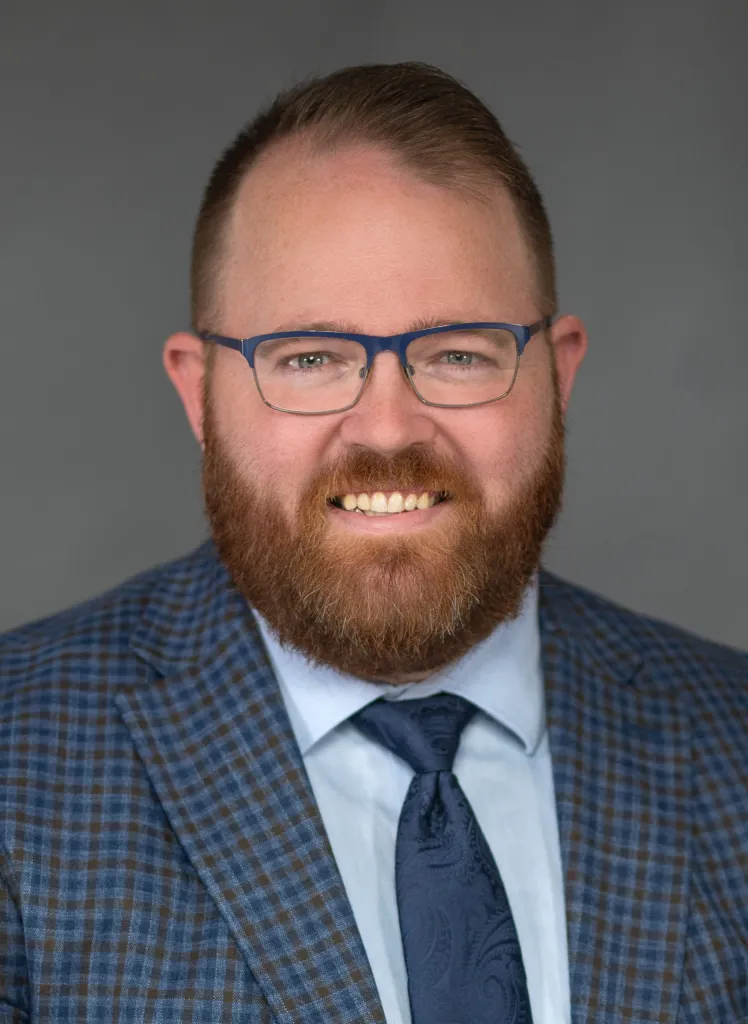
Wilson: That’s always a fun one, because at first, I had no intentions of going into education. My mom was a longtime high school math teacher. I grew up seeing her serve in a thankless capacity, and the high school version of me wanted nothing to do with that.
It wasn’t until I got involved in working with kids at a church that I really found a passion. There was a realization: This is something I like, and I immediately felt good at doing it. I don’t mean that in a self-serving way. I found success in it, and that’s a really cool experience as a high school junior or senior when you’re thinking about what you want to do for the rest of your life. So, I pursued a couple of scholarship opportunities and ended up pulling the trigger on a UNC-Charlotte undergraduate degree — a bachelor’s degree in elementary education. That was the historical nutshell of it right there. I ended up getting a couple of jobs at the local YMCA doing summer camps and after school programs. Everything I did working with kids continued to solidify what I wanted to do.
I always tell people when I retire, I’m going to go back and teach fourth grade, at least for a couple of years. I started with that love, and I want to end with it. I get a ton of satisfaction out of educational leadership, but there’s something magical about the classroom that just cannot be replaced.
![]() Sign up for the EdDaily to start each weekday with the top education news.
Sign up for the EdDaily to start each weekday with the top education news.
Coalition: After a number of years working in district schools, you made the shift to a charter school. What prompted the move to Mountain Island Charter School?
Wilson: I was fortunate to work in a school district that really valued site-based leadership. I did not understand the beauty of that until I got into educational leadership, and I realized both the responsibility and the satisfaction that you get out of being, effectively, the end of the line: The buck stops with you. I had a great experience in Cleveland County serving in that capacity.
My wife had early experience in her career in the charter setting; she and I always had a very positive outlook toward charter schools. We were in the midst of building a new house, and the property where we were building was further away from where I was working. This gave us a chance to recenter and be open to opportunities that might pop up. I was acquainted with a couple of folks at Mountain Island Charter School, and it just so happened they were looking for a middle school/high school principal. I came in to interview, got along with the team, and the rest is history.
I loved what I did in Cleveland County in a traditional public school. There’s a lot to be said about having the large, structural backing as a school leader in a traditional public school. There’s also a lot to be said about the charter setting and being able to be creative and turn what effectively is a smaller boat. You can turn faster. A district is a slow boat to turn; you can’t turn that on a dime. One of the cool things that drew me into the charter sector is the ability to make leadership changes, make systemic changes, more quickly. There’s a lot of fun there.
Coalition: In February, you were recognized as North Carolina’s 2025 Charter School Principal of the Year. What was that like, and what are your plans for this year? Are you looking forward to serving on the Charter Schools Review Board (CSRB)?
Wilson: When that announcement came out, I didn’t expect it. I love what I do. I was very happy to be part of the process and was humbled to be recognized at that level. With the Charter School Principal of the Year role, you’re treated like a region, but at the same time, that region is statewide.
When I began looking at the opportunities that were before me, it became a little bit more sobering. I realized that I may have an opportunity to talk to people who are decision makers for our state. It isn’t something that I have experienced up to this point, and I’m really looking forward to it.
I am also looking forward to serving on the Charter Schools Review Board. I know from talking to Sarena Fuller (the 2024 Charter School Principal of the Year) and some of the folks at the Office of Charter Schools, that (CSRB service) is one of those things that is what you make of it. Having that self-leadership is really a motivating thing for me. I see it more as an opportunity to help charter education and public school education, but certainly, it’s also an opportunity for me to build relationships at the state level.
Related reads

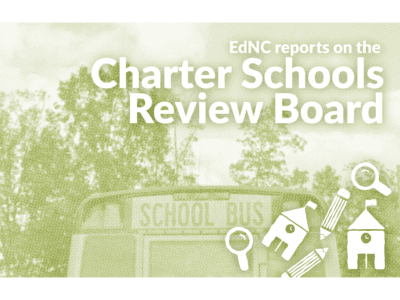
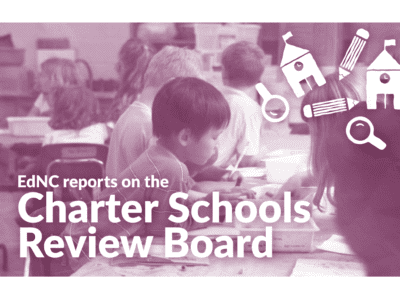
Coalition: I appreciated hearing about your leadership approach in the DPI video sharing your Charter School Teacher of the Year recognition. Why is servant leadership so important?
Wilson: This is a two-part answer. First and foremost, this approach to leadership goes back to my deeply held beliefs of Christian faith and how I approach people around me. I believe that the more responsibility you have, the more responsibility you have to serve those around you.
Secondly, early in my career, I encountered a YMCA leader when I did summer camp who was a big believer in the textbook understanding of servant leadership. He coached a lot of our summer camp staff and leadership in this idea of servant leadership as an upside down triangle. When you think of traditional structures, you think of all of your people who are serving at the bottom. He said you have a lot of people at the bottom and one person at the top, and everyone is kind of holding that person up. But his thought was that the leader should be the one holding other people up. You aren’t holding the entire structure up by yourself; you utilize all of the other people in the organization. But as a leader, you should be the lead servant. You should be the person who is first to put up chairs.
He coined this phrase in my mind: “Never miss an opportunity to grab the mop.” I’ve lived by that.
All too often, some people get to a place where they become removed from the day to day. I think that’s a big mistake in education, especially. We are in a human business. If we are not willing to serve at the kindergarten level, sit in a circle and read a book, or open up ketchup containers in the cafeteria, then we are going to lose connection with our stakeholders — and that’s our kids.
Coalition: You’re a dedicated problem solver who has said you find the thing no one is fixing and work to fix it. What does that approach look like day to day?
Wilson: Some of this goes back to faith for sure, but a lot of it goes back to lessons learned in life. Along the way, my wife and I have realized that the times when we have grown the most as husband and wife, as parents, and as educators — because we are both fortunate to be in the education field — have been the times that are the most difficult.
My athletic director has this saying that I love: “Your team doesn’t get better when you win. You only get better when you lose.”
I use a similar saying because I’m a little bit of a hobbyist woodworker: “You don’t make furniture without sandpaper.”
Essentially, it is the difficult thing that makes us better at what we do. If we only go with the easy thing or the thing that everybody else is solving, then we stay stagnant. We don’t ever really get any better. Taking the risk of failure and going after the thing that no one else wants to tackle — those are the times where we really might fail. That’s OK.
With education, when you put in the work with kids, you’re almost guaranteed to move in a positive direction. Having that draw toward tackling the hard thing gives my staff a level of confidence. They’re now emboldened to speak up about what the actual problem is. It gives them the courage and the empowerment to identify those hard things, and then we start to develop plans that actually move the needle.
Coalition: How does your focus on solving problems for others create a culture of trust and community cohesion among your teachers and staff?
Wilson: One approach that I’ve had with people — and I didn’t coin this phrase, I stole it, but I don’t remember from whom — is that I am “unoffendable.” The only person I allow to offend me is the person I married. There’s really nothing you can say to me that is going to offend me. You can bring me the great stuff; you can bring me the difficult stuff. When you tell people that, though, they will test you. And you have to pass the test. Otherwise, you will create an environment where what you say and what you do simply don’t match.
I have to repeat this statement that I am unoffendable often. You’ll get teachers who will say, “I don’t want to hurt your feelings.”
I will say, “Stop right there. I am unoffendable. You can say whatever you need to say, especially if you’re coming directly to me.”
Ninety percent of the time it’s really not all that offensive, right? But there is the 10% where the thing that they say, internally, I’m like, “Ouch! That kind of hurt.”
But I have to live up to that standard to be unoffendable. Being able to hear that feedback, not take it personally, and then move into a place where we can fix things, builds a really solid trust culture within a community. I’ve seen it happen now at multiple schools. It’s something I lean on heavily because I’ve seen the success of it over and over again.
Coalition: You work with middle and high school kids. What are some of the most effective ways you’ve learned to relate to adolescents?
Wilson: I hold tightly to the concept that Todd Whitaker coined, which is that it’s people, not programs, that make a difference in a school. Believing that has led me to not get caught up in the latest or the loudest classroom management trend.
I have found that relationships are a huge piece of that. The way I create that is I am present, and the only way that I can really be present is by being out in the building. Early on in my assistant principal experience, I was dealing with behavior from a particularly difficult team of sixth grade kids. I realized that if I just parked myself in a chair outside of that group of classrooms, the behavior nearly went away. That proximity made an incredible difference with the behavior of my students. It wasn’t fear, it was simply that there was an adult nearby, and the kids thought, “I’m going to make a better decision.” As kids practice making those better decisions, they become habits, and overall behavior improves.
You can do all kinds of things. You keep a bucket of candy on the cart, so you can tell a kid to get that math turned in and then come see you and get a Snickers bar. Then they do it. The meat and potatoes of it is just being around. At MICS, we do things like “Raptor Legends,” which you can’t get until you’re a senior and you’ve demonstrated that you’ve had a lasting impact on the school during your time here. It’s a big deal. Your picture goes up on the wall. You are memorialized in our school, forever.
We have a high functioning MTSS (Multi-Tiered System of Supports) team that pulls kids in and has weekly meetings with students. Oftentimes, we’ll bring the parent in as well, but we start with the student. We have non-punitive meetings and say, “We are noticing negative habits. What can we do to adjust that negative pattern so that you can be successful? What do you need?” And then we follow up and give students exactly what they need.
The real thing is you have to create different levels of support for different levels of need.
We also give some great positive attention to kids who are already doing positive things. Oftentimes, we don’t ask permission. We just call home, and we brag on them. That is an incredibly powerful tool.
Coalition: What is your favorite charter school moment?
Wilson: Mountain Island Charter is really special, and it is the quintessential example, in my mind, of what charters are meant to be. Mountain Island was created by a group of community members who wanted something different. They looked at their options nearby, and they wanted something else. It isn’t important why.
A school that is created like Mountain Island Charter — and there are many across the state that are like us — means that we have families that are deeply involved in their child’s education. I don’t mean from a political standpoint. They want to be involved in the day to day and to know that they as a parent can have a huge impact on the positive culture of the school.
Here’s what I believe we’re blessed with: We have families who care about the outcomes and who come to school. If I were to go back to a traditional public school, the first thing I would look for is how to mimic that — to get families involved. Because nothing moves a child like the caring parent behind them.
Coalition: Is there anything I didn’t ask that you believe is an important part of this conversation?
Wilson: That is one of my favorite hiring questions. Your questions have had great coverage. I appreciate that you talk openly about the differences between charter and traditional public settings, and I appreciate the opportunity to share the positives of both.
One of the things that is worth talking about are some of the challenges that charter schools do encounter. At Mountain Island Charter School, we try very hard to open our hands to our local traditional public schools. Some of those local schools are very willing to work with us — everything from sharing professional development to being in the same football conference.
We find that we get along with a lot of our school-based educators very well. Sometimes that is not always true at the district office level. I wish there was a way that we could do that better. To me, a rising tide lifts all boats. If charter schools and traditional public schools see their efforts as very similar and get along and share the wins that each have, that will lift the tide of an entire county.
Recommended reading
